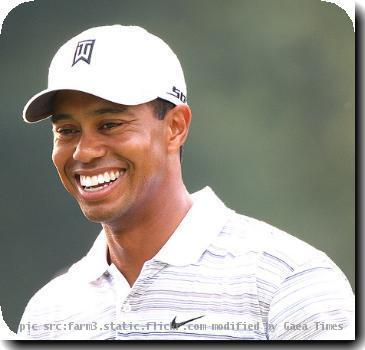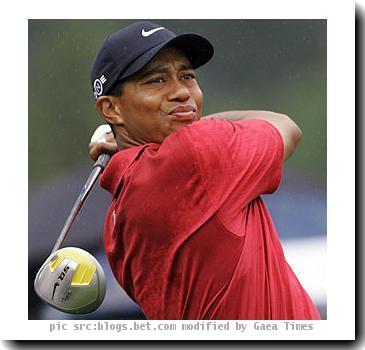The US Open comes to Pebble Beach, and finds a rare golfing treasure by the sea
By Doug Ferguson, APSaturday, June 19, 2010
Open at Pebble Beach: a little bit of golf heaven
PEBBLE BEACH, Calif. — It is among the most famous datelines in golf, right up there with St. Andrews and Augusta. Jack Nicklaus has always that if he could only play one more round, this is where he would go.
Indeed, there is something special about the U.S. Open at Pebble Beach.
Ian Poulter had seen it on television when he watched Tiger Woods blow away the field in 2000, and the odd time the Englishman tuned in to watch the Pebble Beach National Pro-Am. He felt as if he knew the course from video games he once played.
But his first trip to the famed course on the Monterey Peninsula exceeded expectations. He spoke about Pebble Beach the way so many players speak about Augusta National.
“When you finally get here and actually see how they have sculptured the holes around the ocean, it’s pretty amazing,” Poulter said. “There’s a lot of undulation, which you don’t expect, and you don’t pick that up from TV. It just blew me away. I just felt it was probably the best golf course I’ve ever played so far.”
Perhaps that’s why the USGA announced — even before the first shot of the week — that the U.S. Open would return to Pebble Beach in 2019, to celebrate the 100-year anniversary of the fabled resort. Officials usually wait until after the tournament for such a decision, just to make sure everything goes off without a hitch. Pebble, though, is as close to a sure thing as there is in golf.
“One of the most treasured spots in all of golf,” USGA president Jim Hyler said.
Of the two American majors that move around the country, no other golf course has produced such a list of winners — Nicklaus, Tom Watson, Tom Kite and Tiger Woods. Perhaps that trend will continue this year, with Phil Mickelson and Ernie Els among those within striking distance going into the weekend.
For scenery? There is nothing like it.
And the golf is unlike most U.S. Open courses, especially when the conditions get firm and bouncy.
“It’s got that look in a way of links golf,” Ernie Els said. “And it’s almost like links golf on steroids, with the rough and the grass around the bunkers. I really like the setup. The ball runs, which I like.”
On the other side of the Atlantic, where golf was invented, it is often said of the game’s oldest championship that there is the British Open, and there is the British Open at St. Andrews.
Is that the case here?
Is there the U.S. Open, and the U.S. Open at Pebble Beach?
“Probably not,” Nicklaus said recently. “From my standpoint, I’ve won at Oakmont, Baltusrol (twice) and Pebble Beach. All three of those venues are great. Pebble Beach is … I’ve always said if I had one round of golf to play, I’d probably to go Pebble Beach. It’s more special than the others from that standpoint.”
Along with the majestic views, there are a half-dozen holes that standout. The par-3 seventh, which on Saturday became the first U.S. Open hole to measure under 100 yards, juts out into the pacific. The grandstands above that hole were filled eight hours before the leaders even teed off. Then comes the three-hole stretch of par 4s along the Pacific, which longtime golf journalist Dan Jenkins’ once jokingly labeled “Abalone Corner” in a spinoff from Amen Corner at Augusta National.
The second shot on No. 8 goes over a 60-foot cliff, travels across a corner of the Pacific and up a bluff toward the green. The next two holes run along the shore, and it is not unusual to see players try to play off the beaches of Carmel back up to the course.
The par-5 14th, which is inland, is getting more attention than any other hole at Pebble this week because of the diabolical nature of the green. It falls off severely to the right, and a steep shelf sends balls back off the green into the fairway. Par 5s are supposed to be birdie opportunities. This one is playing to an average score of about 5.5 this week.
History comes at the par-3 17th. Players step on the tee and think about Nicklaus and his 1-iron that hit the flag in 1972. They get to the green and think about Watson, who chipped in for birdie to win in 1982.
And then comes the signature 18th, a par 5 along the ocean. For all its beauty, it has yet to decide a U.S. Open.
But that’s what makes all this so surprising. For all the history and acclaim of Pebble Beach, it is hosting only its fifth U.S. Open. Oakmont has held the U.S. Open eight times, and also has a strong list of winners from Ben Hogan to Nicklaus to Johnny Miller. Baltusrol in northern New Jersey has had seven of them.
What took the USGA so long to find this gem?
Pebble hosted the first of four U.S. Amateurs in 1929, when Bobby Jones was upset in the first round by Johnny Goodman. When the U.S. Amateur returned in 1947, USGA president Charles W. Littlefield said, “Let’s hold ‘em all here.”
Jones never had a chance to play the U.S. Open at Pebble Beach. Neither did Hogan, Sam Snead or Byron Nelson. It wasn’t until 1972, when Nicklaus was at the height of his career, that the USGA decided to bring its premier championship to the peninsula.
It was all about location.
“In 1972, that marked the first time the U.S. Open wandered away from a metropolitan area,” USGA executive director David Fay said. “We had championships before then, obviously. But we had had always played the Open in a metro area, whether that was New York or Fort Worth or even Tulsa. And the next time we wandered away from a metro area was Pinehurst in 1999. Interestingly, they’re both resorts.”
If there was any concern that the fans wouldn’t come, those have been dismissed. People have come from all corners of the country, and even the world, for a U.S. Open at Pebble Beach.
“Visually and architecturally and in every other respect, it’s a special place,” Fay said. “The heart pumps a little quicker.”
Tags: California, Events, Men's Golf, North America, Pebble Beach, Tiger Woods, United States

